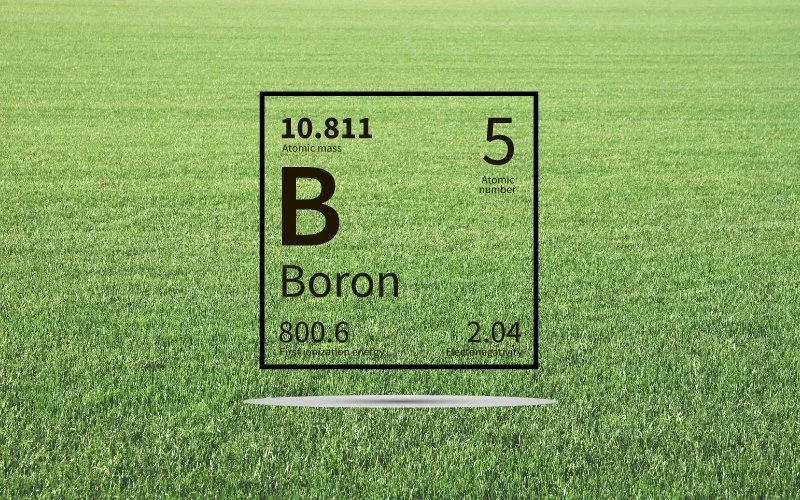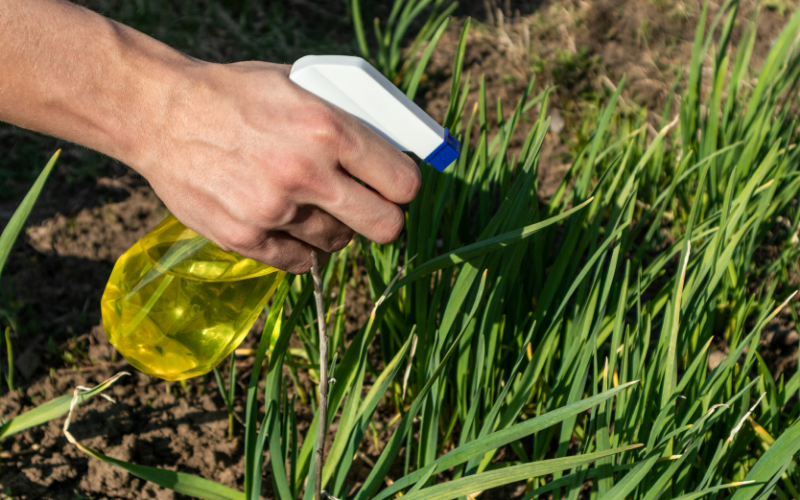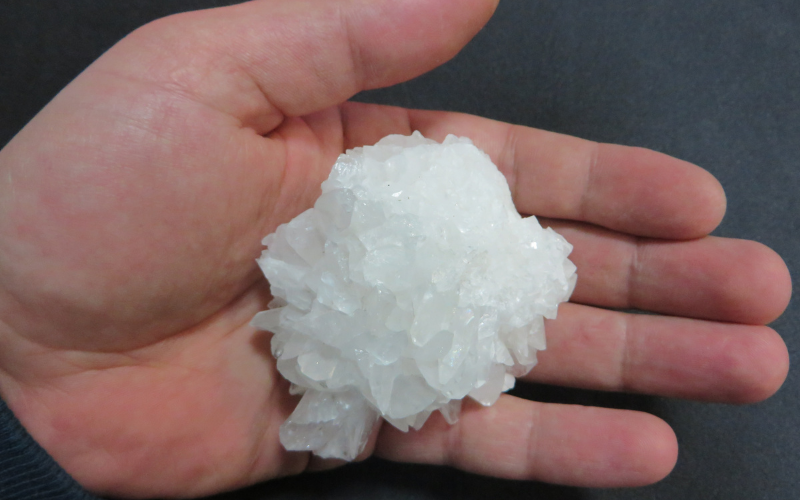Borax is a popular and inexpensive household item that has a reputation as a good, inexpensive weed killer. Given how effective it’s claimed to be, wondering, “Will borax kill grass and weeds?” is justified. No one wants to use a weed killer on their lawn and end up with dead weeds and dead grass. There are, however, ways to have one (an effective weed killer) without the other (a dead lawn.)

Will Borax Kill Grass?
Yes, borax will kill grass if the grass is allowed to come into contact with enough of it. If the grass in question is part of a large, established system like a lawn, the dose of borax required to kill these plants is much larger than the amount needed to kill individual plants and root systems.
For example, you only need about 2.5 oz of borax mixed with about a pint or 16 fl oz of water to create a solution that will kill the grass and weeds growing through the gaps between stepping stones or pavers. This same amount broadcast over a small patch of lawn may damage the system but should not cause any bald patches in most grass varieties.
Related Article: What Kills Grass? A Comprehensive List

The Effects of Borax on Lawns
Borax is a refined product that contains boron. All plants need boron to thrive. In low doses, boron is an excellent plant micro-nutrient. In too high a dose, however, you may end up with a sickly or dead lawn and a patch of ground unable to support much, if any, plant life.
Is Borax a Good Source of Boron?
Borax is a term used for a specific product made of “sodium borate”. Sodium borate is a form of inorganic salt made up of oxygen, hydrogen, sodium, and borate. As mentioned above, all plants, including your lawn, need boron to survive. Borax, as a form of refined sodium borate, is a great way to deliver a soil and liquid soluble form of boron to these plants.
Will Borax Kill Lawn Pests?
Not only will borax kill grass and weeds in sufficient dose, but it can also kill ants and other lawn pests. Ants and termites are particularly susceptible. Broadcasting a few boron flakes over any little ant hills or nests you might find, or sprinkling a small line around your home and garage can keep these pests at bay. Grubs and worms should be unaffected by light applications of borax.
How it works: Ants will eat boron flakes. They will also bring some back to their colony and may even manage to feed some to their queen. This can quickly decimate an ant population.

Is Borax an Effective Herbicide?
Borax is best known as a way to kill invasive, vine-type weeds like “Creeping Charlie”, “Bindweed”, “Wild Morning Glory”, and “Creeping Ivy.” It does this job very well. Borax is easily absorbed through the leafy parts of these plants and will kill them down to the root.
Climbing or creeping vine-type weeds are different in structure from your lawn, and that’s why it’s possible to use borax on them in a concentration that will wipe them out and leave your lawn largely unharmed. However, the active ingredient in borax, boron, can build up in your topsoil and damage the health of your lawn over time if used in large doses or too frequently. Use borax sparingly, especially if you live in a dry climate.
Lawn Types and Boron Needs
Each lawn type may be more or less susceptible to a boron overdose. Below are examples of how some of the most popular lawn types may react to a dose of borax or boron.
Will Borax Kill Bermuda Grass?
Bermuda Grass is the second-heaviest feeder when it comes to boron consumption of all popular lawn types. Using borax to control weeds around Bermuda grass is a viable option given how well Bermuda grass handles higher levels of boron in the soil.
Will Borax Kill Crab Grass?
Borax can kill crabgrass more easily than other types of grass, especially in dry areas. However, do be careful of what the crabgrass is near as too much borax poured on the soil may damage these other plants.
Will Borax Kill Dichondra?
A common grass substitute for lawns on the west coast, Dichondra is more sensitive to boron than grass. Even a little too much boron in the soil can discolor Dichondra foliage and leave it susceptible to fungus. It may be best to avoid using borax on dichondra lawns.
Will Borax Kill Kentucky Bluegrass?
Kentucky Bluegrass is the grass type most sensitive to the addition of boron to the soil. 1/3 as much boron is used by this grass type than any other popular type.
How Much Borax Can Be Used on a Lawn?
As a nutrient and general weedkiller, no more than 1.5 pounds per acre should be used in a 5 to 10 week period, depending on rainfall and type of grass. In dry climates where lawns rely on irrigation and rain is intermittent, adding borax to your lawn is discouraged as it’s much easier for the boron to build up.
On lawns in places where rainfall is frequent, grass grows quickly, and lawns are mowed every week, more boron may be needed as plants will take up more boron after being cut. This can help you avoid boron toxicity, even if a little too much borax has been applied.
Borax and Boron Can Help a Lawn Thrive- or Die
Boron is a necessary nutrient for plant life and borax is an excellent product to deliver that boron.
If you take care with dosing, borax is a solid addition to your lawn and garden toolkit. Just keep in mind that doses should be carefully measured and your soil composition needs to be checked over time to ensure that the boron isn’t building up.


Leave a Reply